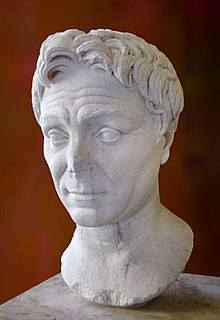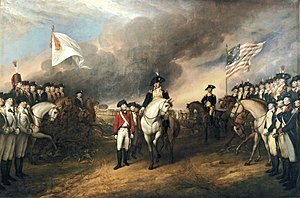September 28 is the 271st day of the year (272nd in leap years) in the Gregorian calendar. There are 94 days remaining until the end of the year.
Holidays
- Christian feast day:
- Czech Statehood Day (Czech Republic)
- International Right to Know Day
- National Day of Awareness and Unity against Child Pornography (Philippines)
- Teachers’ Day (Taiwan and Chinese-Filipino schools in the Philippines), ceremonies dedicated to Confucius are also observed.
- World Heart Day (World Heart Federation)
- World Rabies Day (International)
- Ask a Stupid Question Day (United States)
- Freedom from Hunger Day
- National Good Neighbor Day (United States)
History

In 48 BC, Pompey the Great is assassinated on the orders of King Ptolemy of Egypt after landing in Egypt. He was a military and political leader of the late Roman Republic. He came from a wealthy Italian provincial background, and his father had been the first to establish the family among the Roman nobility. Pompey’s immense success as a general while still very young enabled him to advance directly to his first consulship without meeting the normal requirements for office. His success as a military commander in Sulla’s second civil war resulted in Sulla bestowing the nickname Magnus, “the Great”, upon him. He was consul three times and celebrated three triumphs. In mid-60 BC, Pompey joined Marcus Licinius Crassus and Gaius Julius Caesar in the unofficial military-political alliance known as the First Triumvirate, which Pompey’s marriage to Caesar’s daughter Julia helped secure. After the deaths of Julia and Crassus, Pompey sided with the optimates, the conservative faction of the Roman Senate. Pompey and Caesar then contended for the leadership of the Roman state, leading to a civil war. When Pompey was defeated at the Battle of Pharsalus in 48 BC, he sought refuge in Egypt, where he was assassinated. His career and defeat are significant in Rome’s subsequent transformation from Republic to Empire.
In 235, Pope Pontian resigns. He and Hippolytus, church leader of Rome, are exiled to the mines of Sardinia.
In 351, Battle of Mursa Major: the Roman Emperor Constantius II defeats the usurper Magnentius.
In 365, Roman usurper Procopius bribes two legions passing by Constantinople, and proclaims himself Roman emperor.

In 935, Saint Wenceslas is murdered by his brother, Boleslaus I of Bohemia.
In 995, Members of Slavník’s dynasty – Spytimír, Pobraslav, Pořej and Čáslav are murdered by Boleslaus’s son, Boleslaus II the Pious.
In 1066, William the Bastard (as he was known at the time) invades England beginning the Norman conquest of England.
In 1106, The Battle of Tinchebray – Henry I of England defeats his brother, Robert Curthose.
In 1238, Muslim Valencia surrenders to the besieging King James I of Aragon the Conqueror.
In 1322, Louis IV, Holy Roman Emperor defeats Frederick I of Austria in the Battle of Mühldorf.
In 1448, Christian I is crowned king of Denmark.
In 1538, Ottoman–Venetian War: The Ottoman Navy scores a decisive victory over a Holy League fleet in the Battle of Preveza.
In 1542, Navigator Juan Rodríguez Cabrillo of Portugal arrives at what is now San Diego, California, United States.
In 1779, American Revolution: Samuel Huntington is elected President of the Continental Congress, succeeding John Jay.

In 1781, American forces backed by a French fleet begin the siege of Yorktown, Virginia, during the American Revolutionary War.
In 1787, The newly completed United States Constitution is voted on by the U.S. Congress to be sent to the state legislatures for approval.
In 1791, France becomes the first country to emancipate its Jewish population.
In 1844, Oscar I of Sweden-Norway is crowned king of Sweden.
In 1867, Toronto becomes the capital of Ontario.
In 1867, The United States takes control of Midway Island.
In 1868, Battle of Alcolea causes Queen Isabella II of Spain to flee to France.
In 1871, Brazilian Parliament passes the Law of the Free Womb, granting freedom to all new children born to slaves, the first major step in the eradication of slavery in Brazil.
In 1885, Riots break out in Montreal to protest against compulsory smallpox vaccination.
In 1889, The first General Conference on Weights and Measures (CGPM) defines the length of a meter as the distance between two lines on a standard bar of an alloy of platinum with ten percent iridium, measured at the melting point of ice.

In 1891, Herman Melville, American author and poet (b. 1819) dies at his home in New York City early on the morning of September 28, 1891, at age 72. The doctor listed “cardiac dilation” on the death certificate. He was an American novelist, short story writer, and poet of the American Renaissance period. His best known works include Typee (1846), a romantic account of his experiences in Polynesian life, and his whaling novel Moby-Dick (1851). His work was almost forgotten during his last thirty years. His writing draws on his experience at sea as a common sailor, exploration of literature and philosophy, and engagement in the contradictions of American society in a period of rapid change. He developed a complex, baroque style: the vocabulary is rich and original, a strong sense of rhythm infuses the elaborate sentences, the imagery is often mystical or ironic, and the abundance of allusion extends to biblical scripture, myth, philosophy, literature, and the visual arts.
In 1850 he established a profound but short-lived friendship with Nathaniel Hawthorne, to whom he dedicated Moby-Dick. Moby-Dick was another commercial failure, published to mixed reviews. Melville’s career as a popular author effectively ended with the cool reception of Pierre (1852), in part a satirical portrait of the literary scene. His Revolutionary War novel Israel Potter appeared in 1855. From 1853 to 1856, Melville published short fiction in magazines, most notably “Bartleby, the Scrivener” (1853), “The Encantadas” (1854), and “Benito Cereno” (1855). These and three other stories were collected in 1856 as The Piazza Tales. In 1857, he voyaged to England, where he reunited with Hawthorne for the first time since 1852, and then went on to tour the Near East. The Confidence-Man (1857), was the last prose work he published during his lifetime. He moved to New York to take a position as Customs Inspector and turned to poetry. Battle-Pieces and Aspects of the War (1866) was his poetic reflection on the moral questions of the Civil War. In 1867 his oldest child, Malcolm, died at home from a self-inflicted gunshot. Clarel: A Poem and Pilgrimage in the Holy Land, a metaphysical epic, appeared in 1876. In 1886, his second son, Stanwix, died and Melville retired. During his last years, he privately published two volumes of poetry, left one volume unpublished, and returned to prose of the sea: the novella Billy Budd, left unfinished at his death, was published in 1924.
In 1892, The first night game for American football takes place in a contest between Wyoming Seminary and Mansfield State Normal.

In 1901, Philippine–American War: Filipino guerrillas kill more than forty American soldiers while losing 28 of their own, in a surprise attack in the town of Balangiga on Samar Island.
In 1912 Corporal Frank S. Scott of the United States Army becomes the first enlisted man to die in an airplane crash. He and pilot Lt. Lewis C. Rockwell are killed in the crash of an Army Wright Model B at College Park, Maryland.
In 1912, The Ulster Covenant is signed by half a million Ulster Protestants in opposition to the Third Irish Home Rule Bill.
In 1918, World War I: The Fifth Battle of Ypres begins.
In 1919, Race riots begin in Omaha, Nebraska, US.
In 1924, First round-the-world flight completed.
In 1928, The U.K. Parliament passes the Dangerous Drugs Act outlawing cannabis.
In 1928, Sir Alexander Fleming notices a bacteria-killing mold growing in his laboratory, discovering what later became known as penicillin.
In 1939, Nazi Germany and the Soviet Union agree on a division of Poland after their invasion during World War II.
In 1939, Warsaw surrenders to Nazi Germany during World War II.
In 1944, Soviet Army troops liberate Klooga concentration camp in Klooga, Estonia.
In 1950, Indonesia joins the United Nations.
In 1951, CBS makes the first color televisions available for sale to the general public, but the product is discontinued less than a month later.
In 1958, France ratifies a new Constitution of France; the French Fifth Republic is then formed upon the formal adoption of the new constitution on October 4. Guinea rejects the new constitution, voting for independence instead.
In 1960, Mali and Senegal join the United Nations.
In 1961, A military coup in Damascus effectively ends the United Arab Republic, the union between Egypt and Syria.
In 1962, The Paddington tram depot fire destroys 65 trams in Brisbane, Australia.
In 1963, Whaam!, now considered Roy Lichtenstein‘s most important work, debuted at an exhibition held at the Leo Castelli Gallery that lasted until at October 24.
In 1971, The Parliament of the United Kingdom passes the Misuse of Drugs Act 1971 banning the medicinal use of cannabis.
In 1973, The ITT Building in New York City is bombed in protest at ITT’s alleged involvement in the September 11, 1973 coup d’état in Chile.
In 1975, The Spaghetti House siege, in which nine people are taken hostage, takes place in London.
In 1994, The car ferry MS Estonia sinks in Baltic Sea, killing 852 people.

In 1995, Bob Denard and a group of mercenaries take the islands of Comoros in a coup.
In 1995, Israeli Prime Minister Yitzhak Rabin and PLO Chairman Yasser Arafat sign the Interim Agreement on the West Bank and the Gaza Strip.
In 1996, Former president of Afghanistan Mohammad Najibullah is tortured and brutally murdered by the Taliban.
In 2000, Al-Aqsa Intifada: Ariel Sharon visits Al-Aqsa Mosque known to Jews as the Temple Mount in Jerusalem.
In 2008, SpaceX launches the first private spacecraft, the Falcon 1 into orbit.
In 2009, The military junta leading Guinea, headed by Captain Moussa Dadis Camara, raped, killed, and wounded protesters during a protest rally in a stadium called Stade du 28 Septembre.
In 2012, Somali and African Union forces launch a coordinated assault on the Somali port city of Kismayo to take back the city from al-Shabaab militants.
In 2012, A Dornier Do 228 light aircraft crashes on the outskirts of the Nepalese capital of Kathmandu, killing 19 people.
In 2014, Hong Kong protests : Benny Tai announces that Occupy Central is launched as Hong Kong‘s government headquarters is being occupied by thousands of protesters. Hong Kong police resort to tear gas to disperse protesters but thousands remain.
In 2016, The 2016 South Australian blackout occurs, lasting up to three days in some areas.
In 2018, The 7.5 Mw 2018 Sulawesi earthquake, which triggered a large tsunami, leaves 4,340 dead and 10,679 injured.
In 2020, Sixteen killed from carbon monoxide poisoning in China’s southwestern city of Chongqing coal mine.

